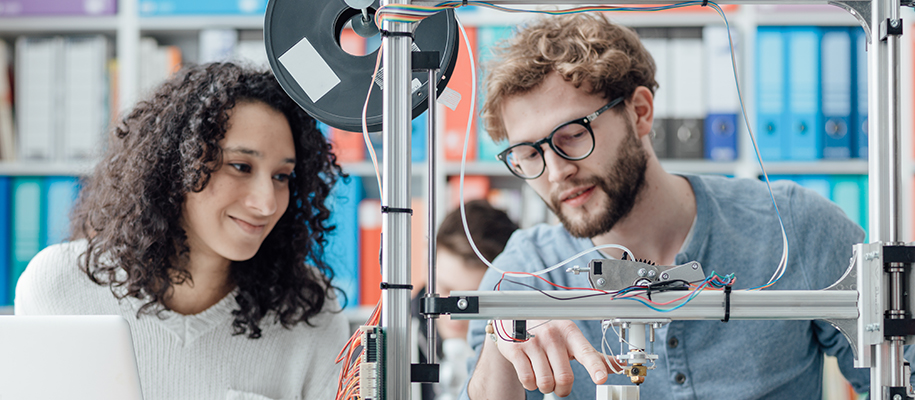College labs are crucial for many majors such as Science, Health, and Engineering. Labs enable hands-on experimentation to enhance students’ understanding of complex scientific course material. They also foster observational, explorative, critical-thinking, and problem-solving skills. Although you may already have lab experience from high school, it’s natural to wonder what college labs will be like. For instance, will you need to dissect another animal? Here’s what to know about taking labs in college.
The importance of college labwork
It’s obvious why labs are integral to science education—you wouldn’t want to take a medication that hadn’t undergone rigorous clinical trials first, which is why testing is so important! According to the National Center for Education Statistics, health-related programs accounted for 13% of conferred degrees in the 2019–20202 academic year, equivalent to 257,300 graduates. Another 6% of college degrees were in biological and biomedical science fields. Of course, Biology, Chemistry, Pharmacology, and Forensic Science aren’t the only programs requiring labwork in college. You may be required to take a lab to fulfill a science elective, and majors like Engineering and Computer Science also spend a fair share of their time in technology labs, sometimes facilitating advanced software for companies to synthesize data and streamline operations more efficiently. Labs are also the birthplace of energy-efficient equipment for renewable energy efforts and help leaders set policy frameworks and regulations for safe drinking water with toxicology testing. All in all, labs are the best environments for innovation and discovery.
Related: A Helpful Guide to Choosing Your STEM Field and Major
What you’ll do in college labs
Professors typically supervise undergraduate science and engineering labs to ensure safety, while students at higher academic levels, such as master’s or doctoral programs, may use the lab independently. College students typically receive guided instruction during labs, although some professors may pair students and have them follow directions from a sheet of paper. College labs are designed to demonstrate your learning from previous course instruction using lab equipment. For example, dissection experiments may follow a lesson on anatomy and physiology. Students in chemistry labs might otherwise combine chemicals to create different reactions. Labs teach students to ask questions, observe small details, and seek answers through experimentation.
Lab safety 101
Students must adhere to stringent lab safety protocols despite whatever experience they have. Even the most skilled professionals take extreme care to protect themselves, their peers, and their research from potential harm. Most often, mistakes and injuries result from human error, such as forgetting to power down equipment or not wearing the proper protective attire. As such, college students must always pay careful attention during lab courses. Colleges and universities will have individual lab protocols for students to follow. Usually, high school lab rules require you to wear close-toed shoes, gloves, and goggles. The dress code may be stricter in college, including wearing acid-proof smocks or masks. Additionally, students may not always work with a partner—a common trend in high school.
Other general college lab safety guidelines typically include knowing where emergency exits, eye-wash stations, showers, and fire extinguishers are. Although you’ll practice due diligence to protect your skin and eyes from toxic chemicals, you should remain prepared for anything. Containers should also be labeled appropriately and sealed when not in use—knocking over an open jar of liquid could cause serious harm. You should also never consume food or beverages in college labs for risk of contamination. Listen to your professors’ instructions closely and take accountability in following the procedures for optimal safety.
Related: What Makes a Great STEM Student? 5 Ways to Become One
Even those who aren’t majoring in science-, health-, or technology-related fields benefit from taking lab courses in college—and many schools require them. Students often enroll in labs for introductory biology and chemistry classes within the first two years. For some, labs offer greater insight into whether they’ve chosen the right major or can see themselves working in a lab setting in the future. Other times, college labs are a steppingstone to the world’s greatest inventions. Despite the many safety protocols to remember, labs provide stimulating, hands-on learning experiences.
Want to find a college that offers great lab experiences and opportunities to pursue undergraduate research? Check out our featured research college lists!





